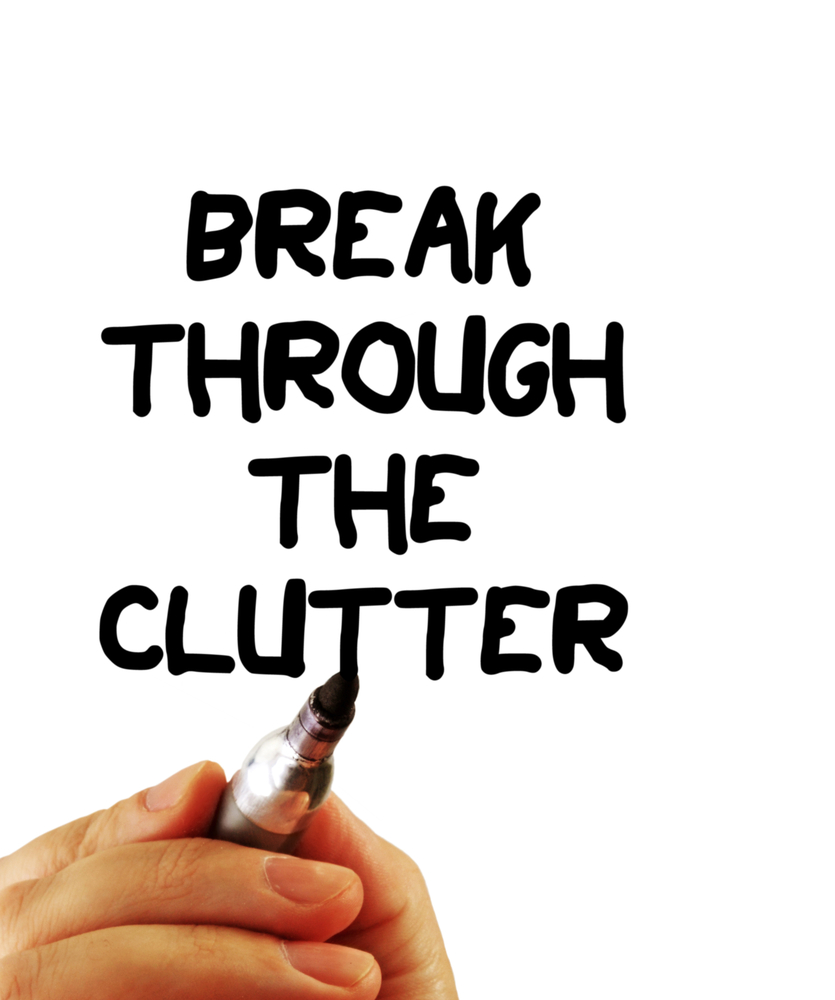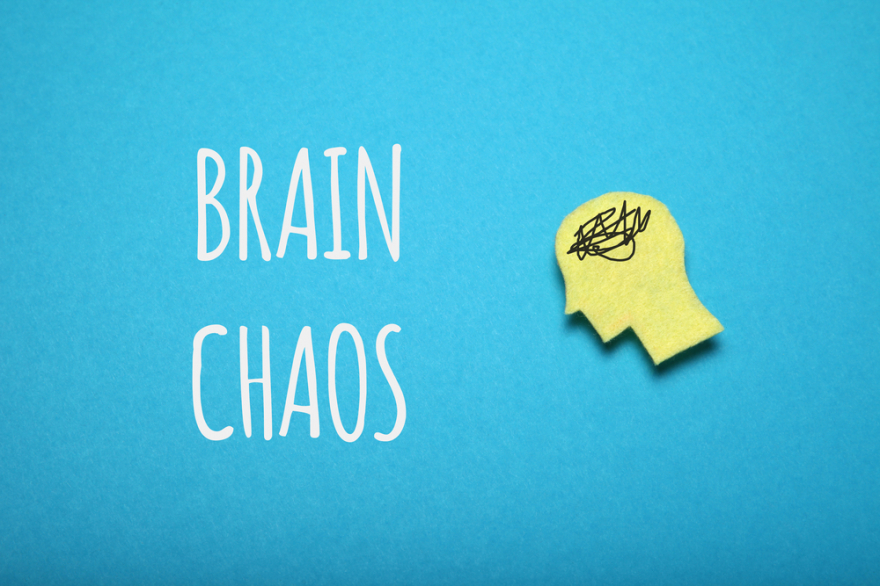Clutter and Its Potential Negative Effect on Your Life
Rev. Dr. Kitty Boitnott, NBCT, RScP
Heart-Centered Career Transition and Job Search Coach | Life Strategies & Stress Management Coaching
Have you bought into the idea that that clutter is a sign of creativity? Or are you are just too busy to bother with putting things back in their proper places after you have used them? Do you tell yourself you'll put them back "later?" And then "later" becomes next week or next month, if it comes at all?
I have a friend who never seems to throw anything away. She is slow to replace things in their proper places as well. As a result, her dining room table is so cluttered with books, old mail, and items she just brought in from the store that eating a meal at the table is out of the question. The corners of her living room are stacked with months-old magazines that she intends to read "later" when she can get to them. Can you guess what happens? She never gets to them. And the stacks keep growing.
Piles of unopened mail are frequently lying around on the kitchen counters. If there were anything urgent there, she might well miss it. That accounts for why, on occasion, she gets a late notice about a bill that has gone unpaid.
Are you getting the picture? Now, she would tell you she is too busy to be bothered with putting stuff away. And I am not debating that she is busy. But the truth is she is also disorganized. And the disorganization manifests itself in the clutter around her.
I love my friend dearly. She is fun and spontaneous and easy to get along with. We have loads of fun together. But I have to admit. When I come home from a visit with her, I feel inspired to throw away all my own accumulated mail and any other signs of clutter. It's like I need to create mental space in my mind (and house) after visiting her.
Clutter isn't necessarily a sign of being busy.
It's more a sign of being unorganized. It may also be a sign of procrastination. And frankly, it could be a sign of a lack of personal control.
More importantly than what clutter may be a sign of, however, are some of the problems that it can cause without your being aware of them. The truth is your clutter could be hurting you in ways you don't understand yet. Studies show that clutter is a problem that can manifest itself in your physical, mental, and financial health.
The Impact of Clutter on Your Mental Health

Clutter ruins your ability to focus. It's hard to concentrate when you are surrounded by the disorganization of books and papers lying around. It interrupts your ability to "get in the flow."
Some studies have also connected clutter with impending mental illness. What if catching oneself or a loved one in the early stages of uncontrolled clutter could get them mental health help earlier or even precipitate a disruption in the illness?
Clutter Produces Anxiety
If your house is cluttered beyond what you yourself deem "normal," you probably worry about someone dropping by unexpectedly and seeing your mess.
You can't get work done because you can't focus properly. A cluttered desk is, after all, the sign of a cluttered mind. And a cluttered mind is one that does not experience peace or tranquility. Instead, it is in a constant state of unease and, yes, anxiety.
Signs of Not Letting Go of the Past

Clutter is also closely tied to an inability to let go of something that happened in the past. If you feel obsessive about your past, it can manifest itself in an inability or unwillingness to let things go.
Maybe you think you are hanging on to a time when you were happier than you are now. But given that no moment counts more than the "now" moment, being willing to let go of the past is healthy. Holding on to it obsessively is a sign of potential trouble.
Could Unchecked Clutter Lead to Hoarding?
Not all people who have a lot of clutter in their homes are or will ever become hoarders. But hoarders didn't set out to become hoarders, did they?
Most of us have watched an episode or two (or more) of the TV show, "Hoarders." The show depicts the real-life struggles and treatment of people who suffer from compulsive hoarding disorder.
Even if you are not a hoarder yourself, the show can be fascinating to watch. If you are a hoarder, it may serve as a cautionary tale.
Compulsive hoarders begin to endanger themselves and those who live around them. Uncontrolled clutter can create fire hazards. It can also lead to mold buildup in the home which causes all sorts of health problems. And it can lead to the infestation of roaches and rodents if it is really out of control.
Which Comes First? The Cluttered Mind or the Cluttered Environment?

People with lots of physical clutter around them also have lots of mental clutter. They have trouble keeping up with things. Indeed, they lose things a lot. They run late on their bills. They run late on appointments. And they live in a constant state of anxiety.
In general, when the clutter is cleared, their outlook on life improves.
So What Should You Do if You Have a Lot of Clutter in Your Life?
I have always considered myself to be pretty well organized. I had to learn organizational skills as a school librarian. Every book had to be placed back in its exact right spot so it could be found easily later.
My office sometimes looked a messy, however. I tend to keep papers in piles until I can get to them to file them away.
I first heard the name, "Marie Kondo," a while back. But I admit, I only recently purchased her book.
I am now hooked on her concept, The KonMari Method.
I have started slowly but surely transforming my closets, drawers, and my whole house. It is one of the best projects I have ever undertaken. When Marie talks about the "life-changing magic of tidying up," she isn't kidding.
Of course, hers isn't the only method around for tidying up and getting rid of clutter. But Marie Kondo says that using her process, her clients never go back to collecting clutter again. Her method provides for a permanent cure to clutter.
I am still working my way through her book--and my house--but I am well on my way to clearing my house of all clutter and unnecessary items that don't cause me to feel "joy." It has been a fascinating exercise.
I am finding clutter in every cabinet and drawer. Recently, I cleaned out a whole cabinet that was taken up with old glass flower vases. These vases have been collected over the years. I keep the vase after the flowers are dead. I guess I think I might use them someday. But all of them??? I don't think so.
As a result, I have taken three boxes of glass vases and glassware to the Good Will store, and I have another box to take in this week.
And that is only one example. I will continue to "KonMari" my house for the next several months because I don't have time to work on it non-stop.
But I have made a good start.
It frees up space for sure. But it also frees up energy. It creates space in every dimension. And if you do declutter or tidy up the way Marie suggests, it creates joy as well. And I am all about creating more joy, aren't you?
I will keep you posted on how it goes. In the meantime, consider if clutter is currently holding you back from the success you want. I will have more to say about clutter next week.
|